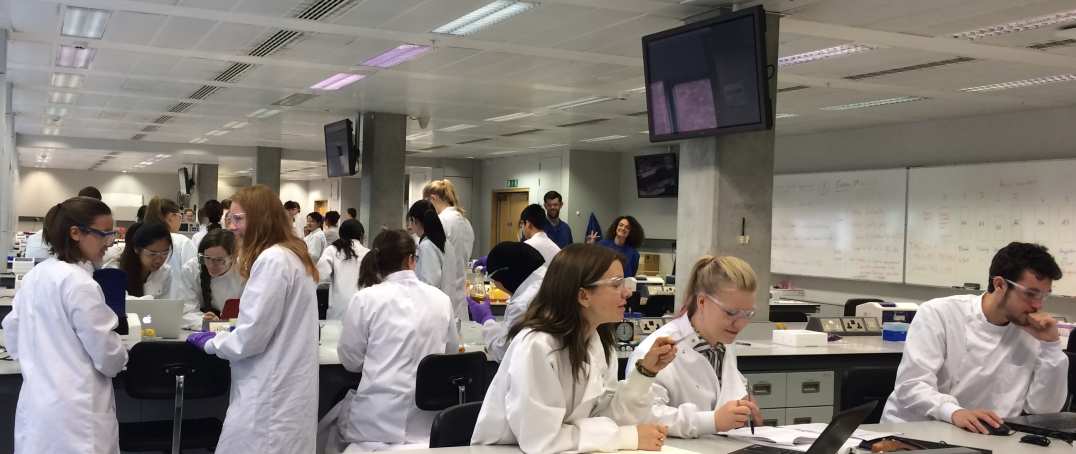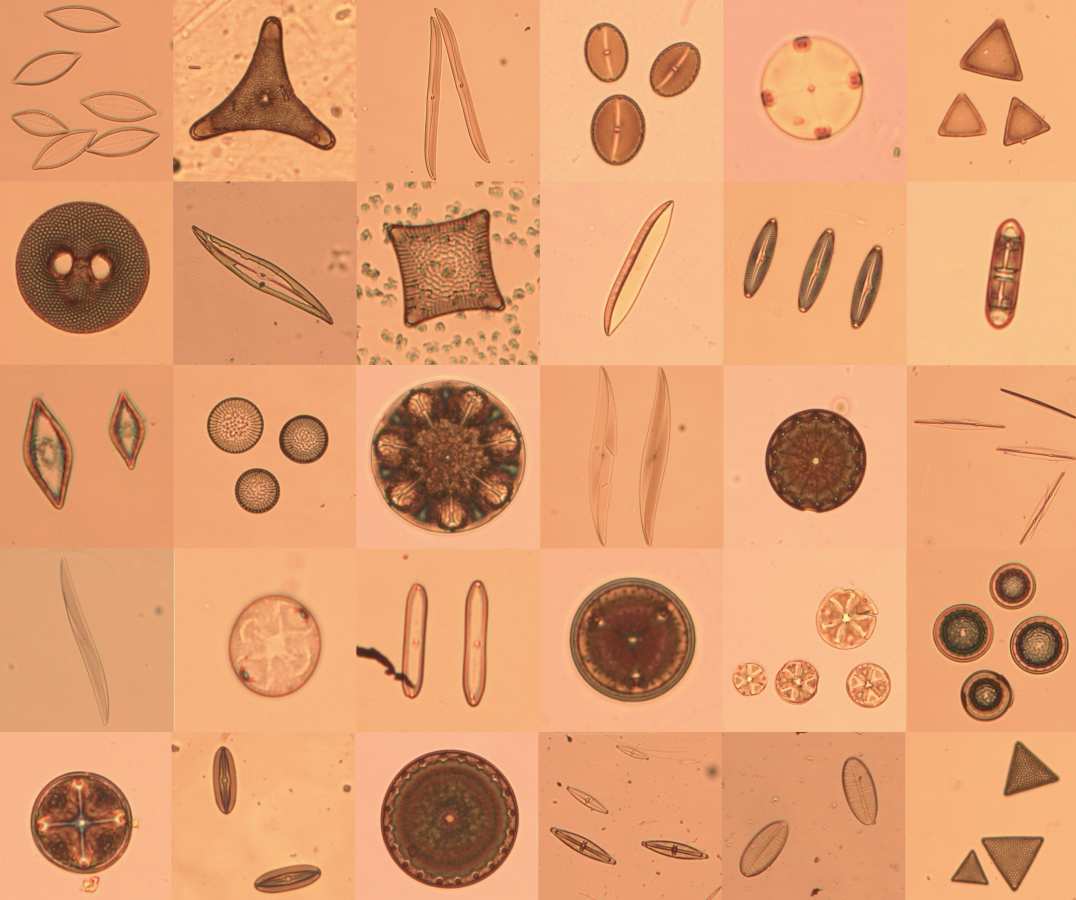Summary
Teaching activities and leadership
E-, BLENDED AND TEAM-BASED LEARNING
I have been blending online and face-to-face teaching since I started teaching at Imperial in 2002. From 2002 to 2005, I was in the first cohort of Imperial's INSPIRE programme, through which I gained a PGCE in teaching secondary school science, and a great deal of practical experience in classroom and small-group teaching.
In the first-year Cell Biology and Genetics course, I have been ongoingly developing a Team Based Learning exercise with the support of our Learning Technologists (particularly Moira Sarsfield). This develops our students' experimental design and statistical skills, and gives them an opportunity to experience a small-scale research project, well before their final-year projects. After our teaching and curriculum review in 2018/19, we introduced more miniprojects of this kind to both first- and second-year.

The TBL exercise leads into a self-designed laboratory practical on bacterial growth
I am an experienced Perl programmer, competent R user, and I am currently dabbling in Python. I have developed Perl packages for teaching and its administration, in particular for the automated grading of Excel practical reports and for the management of Blackboard quiz packages.
Science Communication
We introduced a Science Communication module in 2012 for final-year Life Sciences students who undertake a dissertation project rather than a research project at the end of their degrees. Prof. Stephen Curry and I run this module, with the brilliant contributions of dozens of external speakers, including many alumnx of the Department.
In this module, we aim to develop an understanding of traditional, modern and emerging methods of science communication. The course has a strong emphasis on the practical use of media, and developing the technical and writing skills needed to use them. Something everyone seems to enjoy - staff and students alike - is the creativity and imagination the module allows for.
The module offers workshops in podcasting, video and blogging; and fosters critical discussion of media from TV documentaries, through radio, newspapers and blogs, to popular science books. In particular, I have developed:
- A series of 'writing for newspapers' tutorials, where students discuss found articles, have the opportunity to edit the work of students from previous years, and then write and critique their own articles in small groups.
- A workshop on developing Wikipedia articles. Wikipedia is the "Free Encyclopa(e)dia that anyone can edit" - but despite being the fifth largest website in terms of daily page-views, there are only around 100 000 active editors. I have been contributing to the English language Wikipedia since 2004 as User:Polypompholyx, and it's been great to develop this 'community payback for undergraduates' workshop over the past five years. Student editors have now created or improved around 100 articles, and I hope many more in the future.
![[CC-BY-SA 4.0 Polypompholyx and English language Wikipedia, containing derivative images from editors Ant24788, malczyk, Andi347, Tash510, Minimuns and Perspectionhickmott/Anthony Dancer] Wikipedia pages edited by our students](http://www.imperial.ac.uk/ImageCropToolT4/imageTool/uploaded-images/wikipedia--tojpeg_1500993321999_x2.jpg?r=4314)
[CC-BY-SA 4.0 Polypompholyx and English language Wikipedia, containing derivative images from editors Ant24788, malczyk, Andi347, Tash510, Minimuns and Perspectionhickmott/Anthony Dancer]
Outside of College (and Wikipedia), my science communication work has included workshops on evolutionary biology at the Royal Institution, and blogging and tweeting as Polypompholyx.
LEADERSHIP IN first-year TEACHING ON BIOLOGICAL SCIENCES
I have been convening the first-year Biological Sciences (previously Biology) BSc since 2005. I convene one of the four first-year courses (Biological Chemistry and Microbiology) and teach extensively on two others. My first love was - and is - plants, and I'm delighted to contribute to the plant teaching on the Evolution and Diversity course.

Diatoms, montage from a collection recently curated and photographed by students on a UROP scheme
Within the Department, I was for a few years the Senior Tutor for Biology degrees, and also offer teaching UROP placements from time to time, most recently on the curation of a collection of twenty thousand microscopy slides.
EQUALITY, DIVERSITY AND INCLUSION
The Department aims to provide a welcoming and inclusive environment for all of our staff and students. As an out gay man, I have always found Imperial a great place to work and study. I am a member of Imperial600 (our staff LGBT group), and was President of the student group IQ back in the late 90s. I work closely with Dr Magda Charalambous, the Deputy Senior Tutor for Biological Sciences, and we both sit on the departmental Widening Participation committee, chaired by Prof. Hugh Brady.

